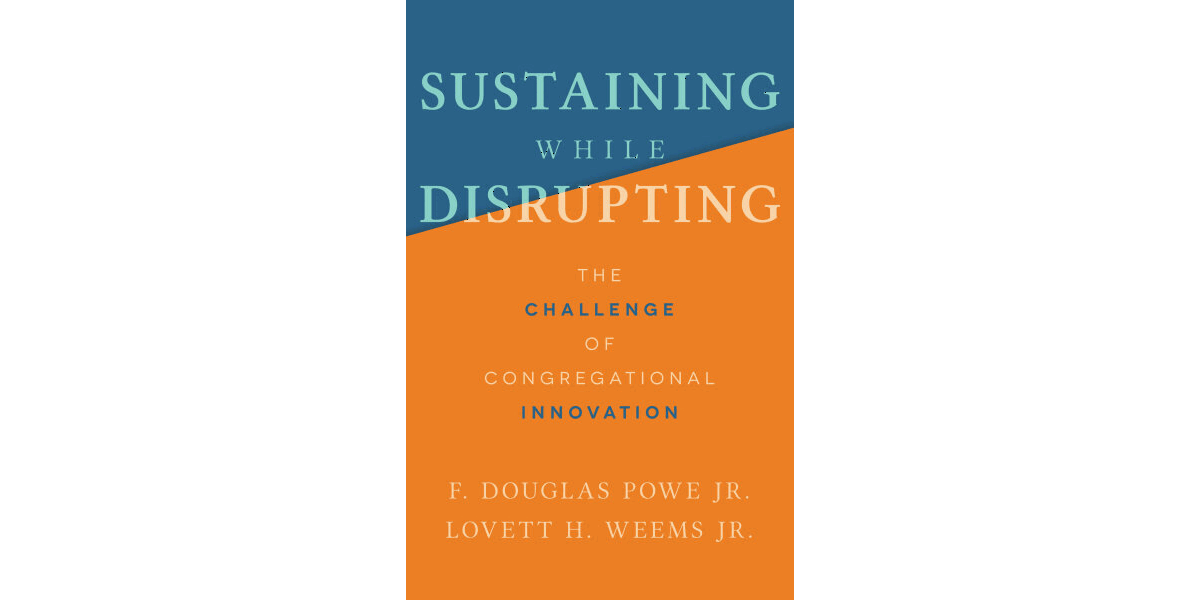Johnson is a United Methodist pastor, the author of "Holding Up Your Corner: Talking About Race in Your Community" and program director for the Bridge Alliance, which houses The Fulcrum.
This summer, I'm excited to explore a series of reviews highlighting the most impactful and thought-provoking books on my reading list. These works, ranging from spiritual guidance to social commentary, have the potential to enrich our minds, broaden our viewpoints, and inspire us to take action. First on the list is “ Sustaining While Disrupting: The Challenge of Congregational Innovation ” by F. Douglas Powe and Lovett H. Weems Jr.
This theologically grounded guide offers practical wisdom for faith practitioners striving to balance tradition and innovation, addressing the broader challenge of cultivating institutions that provide stability in chaotic times while propelling us toward a more just future. Whether you're a person of faith, a social entrepreneur, or a concerned citizen, the book's insights are not only inspiring but also deeply relevant to our current societal climate.
Powe and Weems, seasoned church leaders, contend that congregations must learn to sustain their core traditions and mission while also disrupting the status quo to remain vibrant and relevant. It requires a delicate balance between honoring one's heritage and embracing innovation, comforting the afflicted, and afflicting the comfortable.
The authors don't just theorize — they draw extensively from their own experiences, as well as those of other congregations, to illuminate the challenges and opportunities of sustaining while disrupting. They offer practical, actionable strategies for assessing a congregation's readiness for change, building consensus, and implementing innovations in areas like worship, leadership, and community engagement. These strategies are not just theoretical, but have been tested and proven effective in real-world situations.
What sets this book apart is its unique theological depth. Powe and Weems are not your typical management consultants with a faith veneer. They bring a distinct perspective, grounding their approach in a profound understanding of Christian scripture and tradition, particularly the prophetic call to justice and compassion. This theological depth is not just for faith communities, but for all who seek a deeper understanding of the world and their place in it.
This is what makes “Sustaining While Disrupting” not just a book for faith practitioners, but a crucial read for social entrepreneurs, citizen activists and all who care about the health of our democratic republic. In an era marked by deep divisions and rapid change, we urgently need institutions that can both ground us in a sense of history and purpose, and propel us toward a more just and equitable future. The time to act is now, and this book provides the guidance we need.
As we navigate the tensions between our "is-ness" and our "ought-ness," between the realities of our past and the promise of our potential, the church can be a unique source of wisdom and leadership. By sustaining our deepest values and traditions, we can find the courage and resilience to disrupt our society's injustices and inequalities. By embracing innovation and experimentation, we can help build a world more aligned with God's vision of love, justice and peace.
Of course, this journey is full of risks and challenges. Powe and Weems are candid about their obstacles, from resistance to change to the danger of burnout. They remind us that sustaining while disrupting is not a destination but a continuous process that requires discernment, creativity and perseverance.
Ultimately, "Sustaining While Disrupting" is a hopeful and challenging book, just like the church at its best. It invites us to embrace the tension between tradition and innovation, not as a source of paralysis but as a wellspring of renewal and transformation. It reminds us that the church, faithful to its deepest calling, can be a powerful force for good in the world — a source of comfort and disruption, a beacon of hope from our "is-ness" to our "ought-ness."
As someone who has dedicated their life to this work, I am deeply grateful for the wisdom and guidance that Powe and Weems offer. Their book is a gift for faith practitioners and all who care about the future of our congregations, our communities, and our shared democracy. It is a reminder that, even in the most challenging times, the church can sustain grace and disrupt love — a catalyst for the transformation of ourselves and the world around us.




















